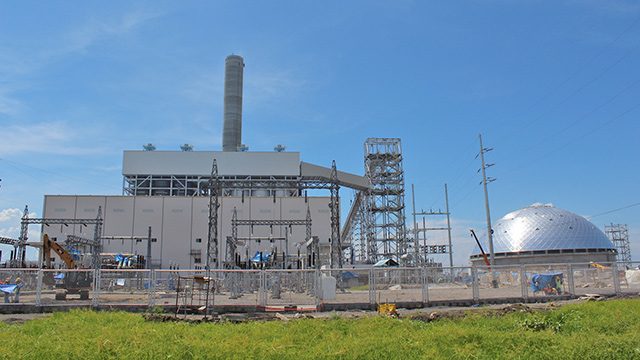SUMMARY
This is AI generated summarization, which may have errors. For context, always refer to the full article.


MANILA, Philippines – Major energy projects may get a boost from President Rodrigo Duterte’s new executive order creating a council tasked with expediting and streamlining the implementation of these projects.
Executive Order No 30, signed by Duterte on June 28, establishes the Energy Investment Coordinating Council (EICC), an inter-agency group to be led by a representative of the Department of Energy (DOE).
The EICC is ordered to “establish a simplified approval process, and harmonize the relevant rules and regulations of all government agencies involved in obtaining permits and regulatory approvals” when it comes to implementing big-ticket energy projects.
Read EO 30 here:
Such major projects are collectively identified in the EO as “Energy Projects of National Significance” or EPNS. These projects may range from power generation to transmission or related services. They must be endorsed by the DOE as a “project of national significance” in keeping with the Philippine Energy Plan.
Among the characteristics of a project that would qualify as an EPNS is a capital investment of at least P3.5 billion, significant environmental impact, significant contribution to economic development, and complex technical processes and engineering designs.
Among the key provisions of the EO is the requirement for agencies to act on applications related to the energy projects within 30 days after the submission of requirements.
If the application is denied, the agency must explain in writing why. If the agency is unable to meet the deadline for responding, the agency must automatically approve the application within 5 working days.
The EO also states that agencies must have “presumption of prior approvals.” This means that agencies that receive an application for an EPNS should process the application without waiting for the action of any other agency.
“The processing agency shall act on the presumption that the relevant permits from other government agencies had already been issued,” reads the EO.
There is a special provision for Environmental Compliance Certificates (ECC), one of the trickiest permits required because of the great environmental impact of projects like coal plants.
Local communities and green groups have often protested the release of ECCs for such projects.
The EO orders the Department of Environment and Natural Resources to formulate new and more streamlined ECC guidelines consistent with the 30-day deadline for responding to applications and the “presumption of prior approvals” clause. The guidelines must be submitted to the Office of the President within 60 days from the effectivity of the EO.
Another function of the council is to prepare rules “governing the resolution of inter-agency issues” that could cause delays in the project’s implementation.
It must also maintain a database of information and a “web-based monitoring system” where updates on the projects are to be posted. – Rappler.com
Add a comment
How does this make you feel?
There are no comments yet. Add your comment to start the conversation.